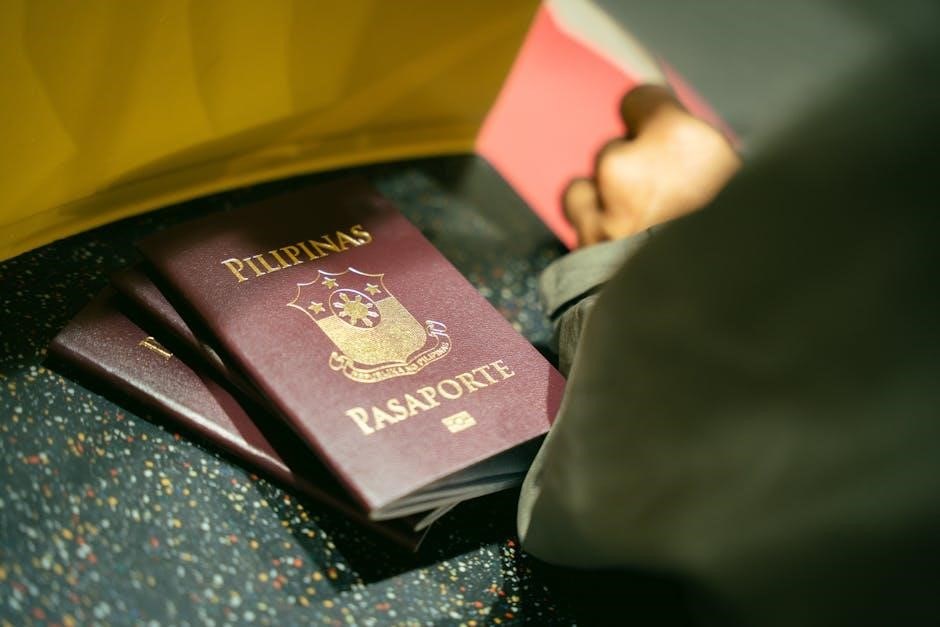Exploring global sexual diversity reveals varying cultural norms and practices, influencing intimacy and relationships worldwide. A study suggests sexual intercourse during embryo implantation may reduce pregnancy chances, highlighting biological and cultural intersections in sexual health.
1.1 Overview of Global Sexual Diversity

Global sexual diversity encompasses a wide range of practices, beliefs, and norms shaped by cultural, historical, and societal influences. From polygamous traditions in some African cultures to the emphasis on monogamy in many Western societies, sexual practices vary significantly. Certain regions integrate rituals and spirituality into sexual expression, while others prioritize discretion and modesty. Globalization has also blurred lines, creating a mosaic of sexual identities and behaviors. This diversity highlights the complexity of human sexuality and the need for understanding and respect in cross-cultural interactions.
Such diversity is further reflected in differing attitudes toward sexual orientation, gender roles, and intimacy practices, illustrating the rich tapestry of global sexual experiences.
1.2 Importance of Cultural Sensitivity in Sexual Relationships
Cultural sensitivity is crucial in navigating sexual relationships across different backgrounds. Understanding and respecting cultural norms, values, and beliefs fosters trust and mutual respect. Misinterpreting cues or ignoring traditions can lead to misunderstandings or offense. Open communication about expectations and boundaries is essential. Recognizing differences in communication styles, such as direct versus indirect expressions of intimacy, can deepen connections. Additionally, being aware of gender roles and sexual norms in various cultures helps avoid conflicts. By embracing diversity and approaching relationships with empathy, individuals can build stronger, more meaningful bonds.
This sensitivity not only enhances intimacy but also promotes cross-cultural understanding and respect.

Understanding Sexual Health Across Cultures
Sexual health practices vary widely across cultures, influenced by traditions, beliefs, and societal norms. A study in Fertility and Sterility highlights how timing of intercourse affects pregnancy outcomes.
2.1 Sexual Health Practices in Different Regions
Sexual health practices vary significantly across regions, shaped by cultural, religious, and societal norms. In Europe, open discussions about sexuality and contraception are common, while in Asia, practices often reflect traditional values. A study published in Fertility and Sterility suggests that timing sexual intercourse during embryo implantation may influence pregnancy outcomes, highlighting biological and cultural intersections. Education plays a crucial role in shaping sexual health awareness, with some regions emphasizing comprehensive sex education and others focusing on abstinence. These differences underscore the importance of cultural sensitivity and access to accurate information.
2.2 The Role of Education in Sexual Wellness
Sexual education is a cornerstone of sexual wellness, empowering individuals with knowledge to make informed decisions. Comprehensive programs often include topics like consent, contraception, and STI prevention, fostering healthier relationships. In contrast, limited or abstinence-only education may leave gaps in understanding. Cultural influences shape the content and delivery of sexual education, with some regions embracing open discussions and others prioritizing traditional values. Access to accurate information is crucial, as it directly impacts sexual health outcomes, including reduced rates of unintended pregnancies and sexually transmitted infections. Education bridges the gap between awareness and action, promoting overall well-being.

Communication in International Relationships
Communication in international relationships thrives with technology like translation apps. Active listening and learning each other’s languages foster connection. Open dialogue about expectations and boundaries strengthens trust and mutual respect.
3.1 Verbal and Non-Verbal Cues in Different Cultures
Verbal and non-verbal cues vary significantly across cultures, impacting intimacy. Direct communication is valued in Western societies, while indirect methods are common in Eastern cultures. Body language, eye contact, and gestures carry different meanings globally. For instance, prolonged eye contact may signify trust in some cultures but disrespect in others. Understanding these differences fosters deeper connections in international relationships. Misinterpreting cues can lead to misunderstandings, emphasizing the need for cultural awareness. Learning about these variations enhances emotional intelligence and strengthens bonds in diverse relationships.
3;2 Navigating Language Barriers in Intimate Settings
Language barriers in intimate relationships can pose significant challenges, requiring creative solutions. Couples may rely on translation apps or learn basic phrases to communicate effectively. Emotional expressions often transcend words, but misunderstandings can arise. Patience and empathy are crucial in bridging gaps. While technology, like Google Translate, helps, it shouldn’t replace genuine emotional effort. Balancing reliance on tools with heartfelt connection fosters deeper intimacy. Overcoming language barriers requires mutual effort and understanding, strengthening the bond between partners from diverse linguistic backgrounds.
Legal and Ethical Considerations
Understanding legal and ethical factors in international relationships is crucial. Laws vary globally, and cultural norms influence sexual practices. Consent and respect are universal, ensuring ethical intimacy.
4.1 Age of Consent Laws Worldwide
Age of consent laws vary significantly across countries and regions, reflecting cultural, legal, and societal norms. In some nations, the legal age is 16, while others set it at 18 or higher. These laws aim to protect minors from exploitation and ensure ethical sexual interactions. Understanding and respecting these laws is crucial for individuals in international relationships to avoid legal consequences. Variations in age of consent highlight the importance of awareness and adherence to local regulations when engaging in sexual activities abroad. This ensures safety, legality, and mutual respect in all intimate encounters.
4.2 Ethical Implications of Cross-Cultural Relationships

Cross-cultural relationships often raise ethical considerations, particularly regarding power dynamics and consent. Differences in cultural norms, economic status, and social expectations can create imbalances, potentially leading to exploitation. It is essential to prioritize clear communication and mutual respect to ensure ethical interactions. Understanding and respecting cultural traditions while maintaining personal boundaries is crucial. Additionally, being aware of legal and societal expectations in both cultures helps navigate relationships responsibly. Ethical considerations ensure that both parties engage in consensual, respectful, and equitable interactions, fostering healthy and meaningful connections across cultural divides.
The Impact of Technology on International Sexuality
Technology has revolutionized international sexuality by enabling global connections through dating apps and fostering virtual intimacy, transforming how people explore and maintain cross-border relationships.
5.1 Dating Apps and Global Connectivity
Dating apps have transformed the landscape of international relationships, enabling global connections with unprecedented ease. Platforms like Tinder and Bumble have broken geographical barriers, fostering cross-cultural romantic encounters. These apps allow users to explore diverse preferences, lifestyles, and cultural norms, promoting open-mindedness and inclusivity. The rise of virtual dating has also addressed challenges such as language gaps and time zones, creating opportunities for meaningful connections worldwide. With features like translation tools and location-based matching, dating apps have become essential tools for navigating global sexuality and building intimate relationships across borders.
5.2 The Rise of Virtual Sex and Long-Distance Relationships
The advent of technology has revolutionized intimacy, with virtual sex becoming a cornerstone of long-distance relationships. Tools like video calls, VR, and interactive toys enable immersive experiences, bridging physical gaps. These innovations foster emotional and sexual connection, allowing partners to maintain intimacy despite geographical separation. Virtual sex also offers a safe space for exploration, promoting open communication and trust. As global connectivity grows, virtual intimacy is redefining how people navigate love and desire across borders, ensuring that distance no longer limits emotional and physical closeness in international relationships.
International sexual practices reflect a blend of cultural, emotional, and technological influences, shaping intimate connections worldwide. Understanding these dynamics fosters deeper empathy and global sexual well-being.
6.1 Summarizing Key Takeaways
Navigating global intimacy requires understanding cultural differences, legal frameworks, and technological influences. Key takeaways include the importance of cultural sensitivity, open communication, and education in fostering healthy relationships. Legal awareness, such as age of consent laws, is crucial for ethical practices. Technology, like dating apps, has revolutionized connectivity but also introduces challenges like virtual intimacy and language barriers. By embracing diversity and promoting respect, individuals can build meaningful cross-cultural connections, ensuring mutual understanding and consent in all interactions.
6.2 The Future of International Sexual Relationships
The future of international sexual relationships lies in embracing technological advancements and cultural exchange. Virtual reality and AI may enhance intimacy, while telepresence could redefine long-distance connections. Education and ethical frameworks will play a pivotal role in ensuring healthy, respectful relationships. As globalization deepens, understanding diverse sexual practices and legal standards will become increasingly important. By fostering open dialogue and mutual respect, individuals can navigate cross-cultural intimacy with confidence, creating a future where love and desire transcend borders seamlessly.